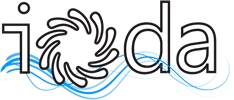Glasgow September 2015: Schedule
Friday 11 September 2015
IODA: Training 1
A crash-course in adjoint-based optimisation
11 September 2015, MacDonald Hotel, Loch Ard, Glasgow, UK
Presenters
Dr. Jens-Dominik Mueller, Queen Mary Unversity of London
Prof. Kyriakos Giannakoglou, National Technical University of Athens
Schedule
09:00-9:20 Welcome Dr. Jens-Dominik Mueller, QMUL)
-
Organisation of the workshop, schedule, programme (JDM)
-
Overview of the IODA project (JDM): Motivation and rationale; aims, objectives, structure;
training provided by the project; deliverables
09:20-11:00 1: Introduction to numerical optimisation, univariate methods (JDM)
-
Overview: what is it, what can it do, what are the benefits, where are the difficulties
Examples. Stochastic vs. gradient based optimisation. Advantages of gradient-based
optimisation in CFD, issues with industrial application.
-
Overview of popular gradient-based univariate optimisation algorithms.
11:15-12:45 2: Multivariate optimisation methods, gradient computation (JDM)
-
Extension from univariate to multi-variate optimisation, line searches and Wolfe conditions, trust region methods.
-
Gradient computation, assembling derivatives, chain rule.
-
Examples of sensitivity fields, physical meaning of adjoint fields, discrete vs continuous adjoints
-
14:00-15:30 3: Introduction to Continuous Adjoint Methods (Kyriakos Giannakoglou, NTUA)
• The talk will give a detailed introduction to the discrete and continuous adjoint method. Basics of both approaches will be presented whereas the continuous adjoint method will first be presented for simple quasi-one-dimensional flow examples. A couple of industrial applications of the adjoint method will be presented. A list of "hot" research topics in the thematic area will be provided too.
15:45-17:15 4: Parametrisation for shape optimisation (JDM)
-
Overview of methods: lattice based, free-form deformation, radial-basis function
-
Node-based parametrisations, regularisation, preconditioning.
-
CAD-based parametrisations
|
|
|
|
|
|

